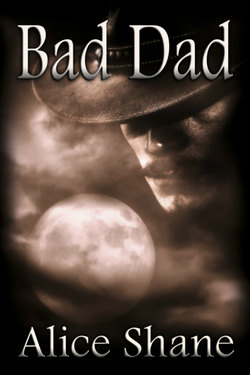Читать книгу Bad Dad - Alice Shane - Страница 10
На сайте Литреса книга снята с продажи.
CHAPTER 7
ОглавлениеHer office was her sanctuary. It was an escape from Lester – a place to work, dream and create. A lifetime of books lined the walls, some dating back to her early childhood and her emergence as a young adult – a collection of Nancy Drew mysteries, Treasure Island, Bobbsey Twins books; favorite classics she had studied in college – Shakespeare, Edith Wharton, Henry James, T.S. Eliot, as well as more contemporary writers – poetry by Alan Ginsburg, novels by Jack Kerouac, Philip Roth, Jonathan Franzen. A mahogany armoire with doors that closed and locked, held her computer, printer and reference books.
Lester could conceivably betray her in favor of his son, it occurred to Margo. suddenly overcome by panic and fears of abandonment. Her body stiffened with anxiety. What could be done? What was there to do? Nothing has happened so far, she realized, her breathing coming more easily. Her concerns were an overreaction caused by childhood traumas and bad memories – the premature death of her father, her mother’s coldness and subsequent marriages to two other men who also died.
Her father, David Hawthorne, had passed away suddenly, without warning, when she was fourteen. A sepsis infection, his doctors said. He was only 39. She was devastated. The loss was unbearable, difficult for her to accept. She never realized how much she loved her father until then. He was someone she and her mother took for granted – a sales executive for an international corporation who worked long hours, traveled extensively and was gone for long periods of time.
There were arguments. Her mother complained bitterly about her father’s long absences, with accusations flying back and forth about one another’s infidelities.
A nurse who worked at the Pennsylvania Cancer Center in suburban Philadelphia, Janet Hawthorne would sometimes disappear in the evenings when he was away, leaving Margo’s dinner in the refrigerator – usually a sandwich or a defrosted dish of leftovers – before rushing out of the house wearing short, swishy dresses with shoestring shoulder straps, and sandals, leaving a trail of perfume.
“Bye, darling. I’ll be home before you know it,” she would say, tossing Margo a kiss, closing the back door quickly behind her, as if trying to escape from something unpleasant. Margo could hear Janet rev up the car and speed off.
Janet explained her absences by saying she was going out with “the girls,” referring to some of the other nurses at the hospital. But Margo knew better, even if she was only fourteen. On several occasions, she overheard her mother speaking on the telephone in hushed tones with strange men. Or at least she assumed they were men. She could tell by the flirty inflections in Janet’s voice.
An only child, her mother’s mysterious disappearances, sometimes until the early morning hours, reinforced a sense of aloneness she had known all of her young life, intensifying feelings of isolation, of being unwanted and neglected.
It wasn’t until she was older, in her early twenties and in college, that she began to wonder how her father, an apparently healthy man, could have died so young, so suddenly. The diagnosis of a sepsis infection perplexed Margo whose research unearthed the fact that arsenic poisoning had many of the same symptoms as sepsis. Her father’s untimely death was always difficult to understand, unknowable.
Her mother had arranged the cremation of her father, an unthinkable event to the fourteen-year old. Cremation was cheaper, Janet explained to little Margo. “There isn’t much money around,” she recalled her mother saying matter-of-factly.
Janet Hawthorne remarried twice since then, each new spouse dying suddenly of a heart attack or heart failure, their deaths enriching her financially. With three dead husbands who carried life insurance, there was more than enough money to pay for Margo’s private school education at Germantown Friends and Barnard College, her junior year abroad and, afterward, Columbia School of Journalism. Margo was grateful for these advantages, of course, but the sources of that money – insurance collected on the lives of three dead men – made her feel like a co-conspirator in crimes she could not name.
Her mother was a secretive and aloof woman, even before her father’s death, Margo now recalled. But that tendency became more pronounced with each new marriage and the sudden demise of her second and third husbands.
Margo barely knew these temporary stepfathers – David Wiley, a Main Line realtor and Jim Goldsmith, an investment banker at Goldman Sachs. The only time she spent with them was during Thanksgiving and Christmas or when she accompanied Janet on occasional trips to the theatre when she was a student at Barnard and Columbia.
She was present at both marriage ceremonies, of course, each only three years apart. The first, when her mother married Dave Wiley, conducted by a Pennsylvania State Supreme Court judge, later celebrated with hospital cronies at the posh Le Bec- Fin, in midtown Philadelphia restaurant. Janet’s third marriage, to Jim Goldsmith, was more private and solemn, held in the Rittenhouse Square rectory of a Unitarian minister. They honeymooned in Scotland for three-weeks, staying at Skibo Castle, a pricey resort/private club once owned by the Carnegie family.
With Margo out of the house, away at school, her father’s remains in a silver urn on the living room mantle, she came to realize that her mother must have experienced a kind of liberation, openly pursuing relationships with other men, without having to lie or conceal their presence from her or anyone else.
